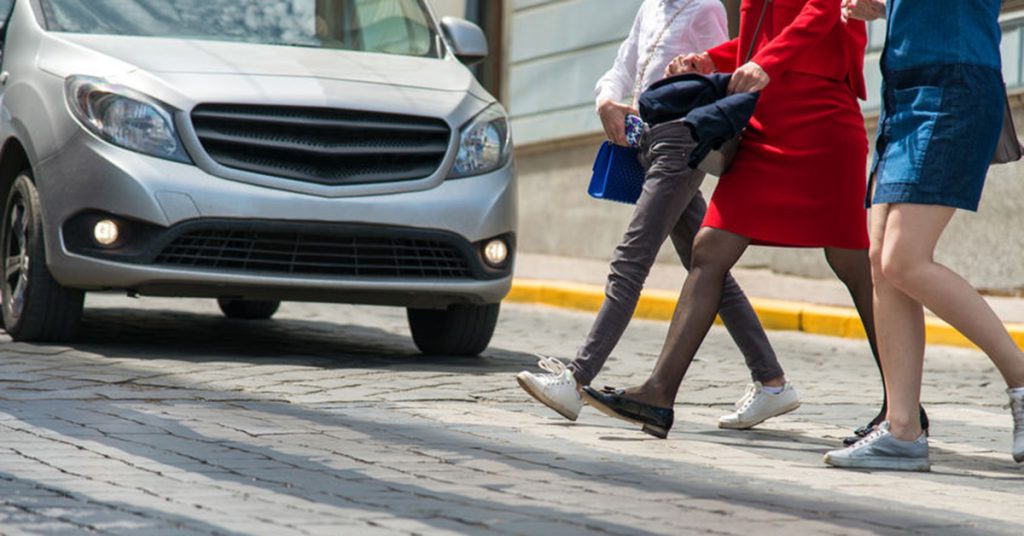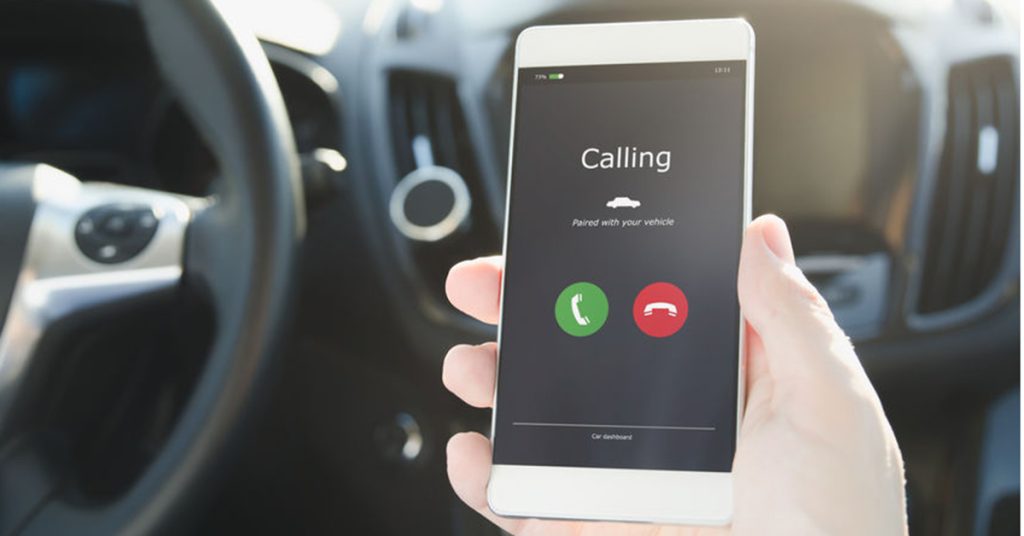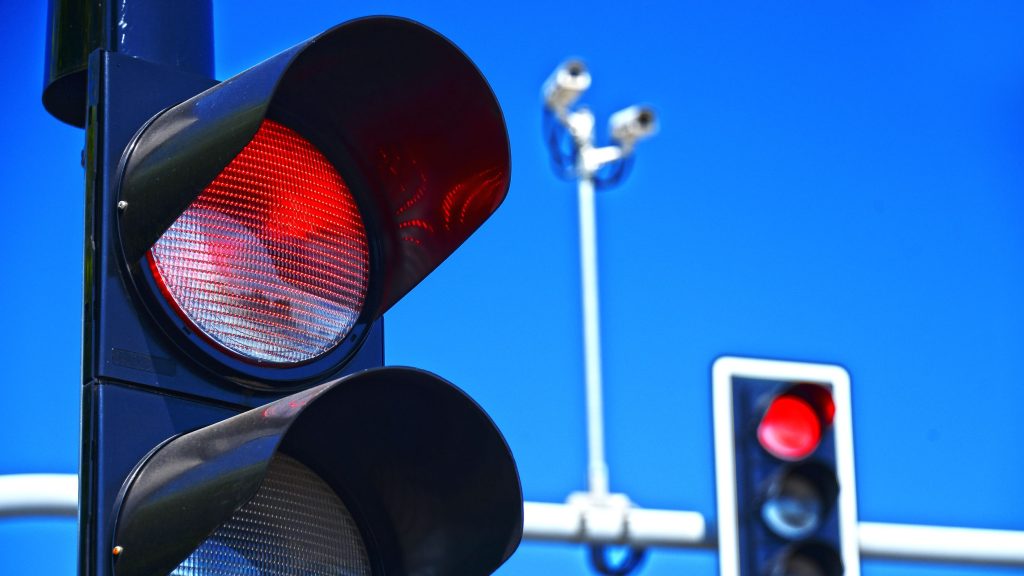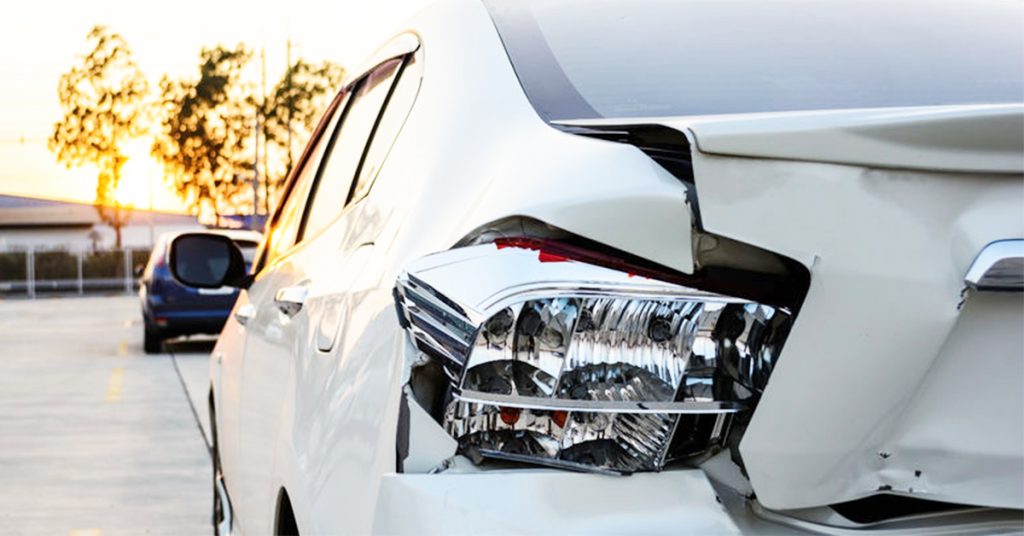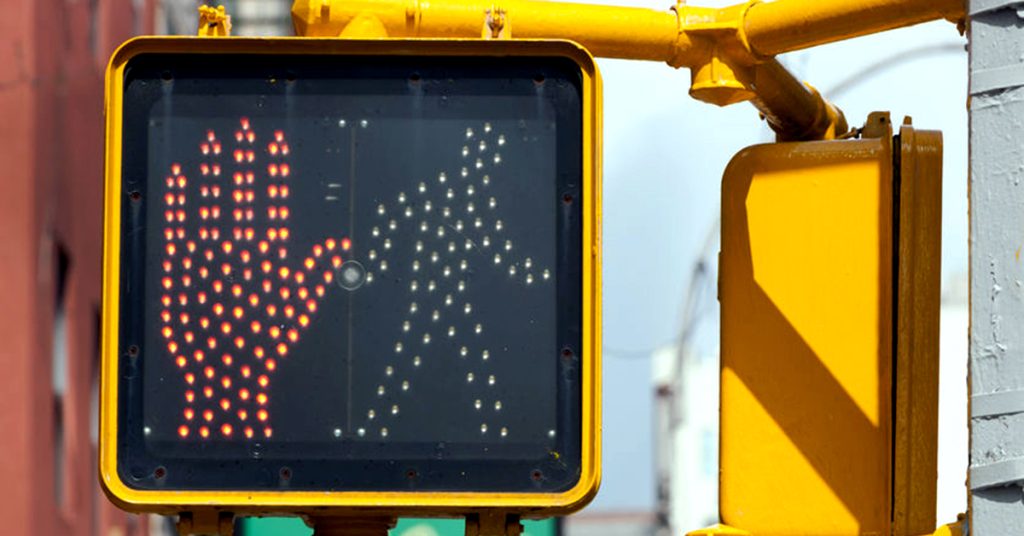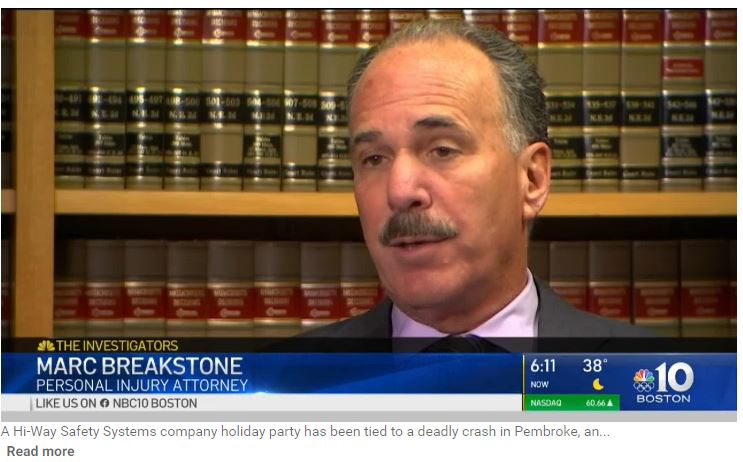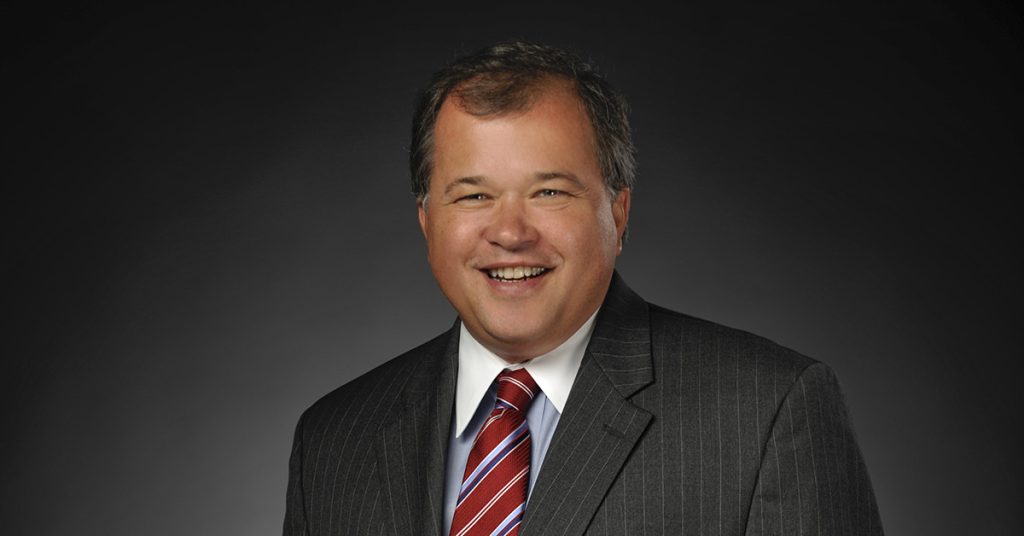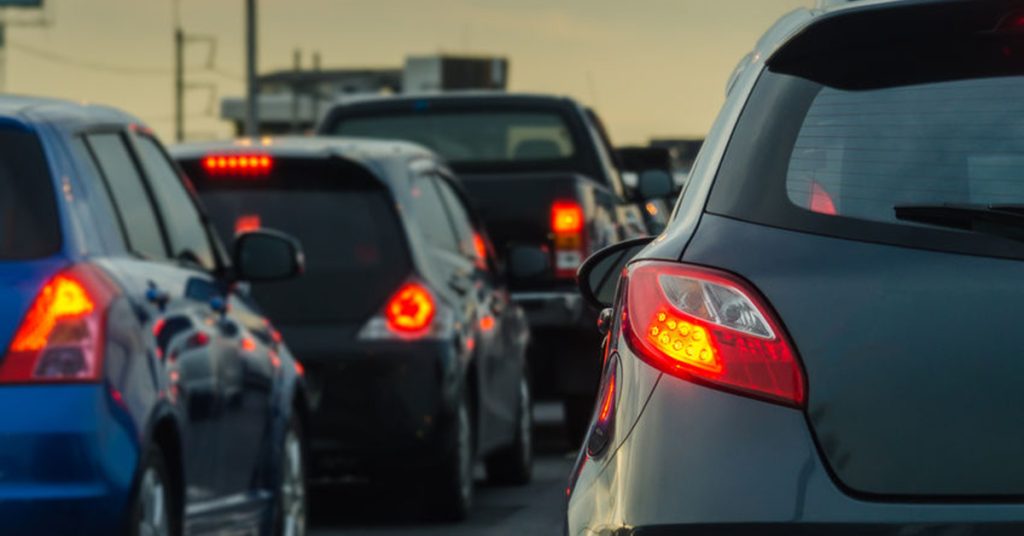Car Accidents
In Massachusetts, Less Traffic Congestion, But Drivers are Speeding Dangerously Down Open Roads

In Massachusetts, traffic is lighter during the COVID-19 emergency, but drivers are being warned to slow down.
During the COVID-19 emergency, Massachusetts residents are getting an unprecedented look at life without traffic congestion. With fewer cars out, there have been fewer accidents. But the drivers who are out have been speeding down open streets. State transportation officials say the high speeds are contributing to traffic fatalities.
The rate of traffic fatalities doubled in April, when traffic dropped by 50 percent on some highways, according the Massachusetts Department of Transportation (or MassDOT). The Boston Globe reported that 28 people died in April, compared to 27 during April 2019, when there was no disruption to traffic.
Speeding and distracted driving have contributed to fatal accidents. According to MassDOT, the fatal crashes resulted in the deaths of drivers, passengers, two motorcyclists and three pedestrians. In Boston, a cyclist was killed by a large truck near Massachusetts and Harrison avenues.
In Boston, Mayor Marty Walsh urged drivers to slow down during his briefing last week. News briefing posted May 1.
“With less traffic, what we’re starting to see is increased speed,” Walsh said. “So the crashes that do happen have been more severe due to the high speed impacts. Even an increase of four to five miles per hour can make a big difference in terms of injuries and possible death.”
The MassDOT did not provide overall crash data for last month. Preliminary data shows two-thirds of crashes happened on local roads.
When traveling in their communities, drivers must remember that they share the road with cyclists and pedestrians. Right now, there are more people out, of all ages. It is essential to stop at crosswalks, yield to pedestrians and drive slowly.
It is also essential to watch for cyclists and practice situational awareness, especially when turning at intersections. Remember that cyclists are allowed to travel in bike lanes, on the right side of the road or in the middle of the lane if necessary for safety. Because cyclists may need to change their lane (for example, to avoid an illegally parked car), it is important to provide cyclists with ample room to make safe decisions.
Just How Slowly Should You Drive?
As a first step, commit to follow the speed limit or travel even slower when necessary. By doing so, you leave yourself more time to stop and prevent a crash before it happens.
It is important to remember that you control your speed and research has found fatal injuries are less likely at lower speeds. Consider a driver who was traveling at 40 mph and hit a pedestrian. There is a 73 percent likelihood that the driver will cause the pedestrian severe injury or death, according to the Vision Zero safety campaign. At 30 mph, the risk for severe injury or death is reduced to 40 percent. At 20 mph, there is a 13 percent likelihood of causing severe injury or death.
Fewer Drivers, Fewer Tickets and Fewer Car Accidents
The Boston Globe reported on Massachusetts traffic activity on April 30th. As the state responds to COVID-19, there has been a dramatic decline in traffic, citations and accidents.
From March 23 to April 26, more than 2,600 car accidents were reported across Massachusetts. 12,000 car accidents were reported during the same period in 2019.
Another measure of driving activity is usually traffic citations or moving violations, such as speeding and parking violations. But during the first three weeks of April 2020, as residents stayed home and law enforcement responded to COVID-19, Massachusetts police departments issued 95 percent fewer tickets for moving violations compared to the same period in 2019.
While traffic remains light overall, Massachusetts State Police have also observed a “significant surge” in drivers speeding more than 100 mph, according to the Globe. Specifically, drivers have also complained about speeding on the MassPike. Now, the agency plans to increase patrols at random times and places.
Breakstone, White & Gluck – Boston Car Accident Lawyers
Free Legal Consultation
Breakstone, White & Gluck represents those who have been injured by the negligence of others in Massachusetts. Our personal injury attorneys provide experienced representation after motor vehicle accidents, including car accidents, truck crashes, pedestrian accidents and bicycle collisions.
Learn your legal rights after an accident. For a free legal consultation, contact Breakstone, White & Gluck. Call 800-379-1244 or 617-723-7676 or use our contact form.
Massachusetts Hands-Free Law Update: Fines Can Begin April 1, 2020
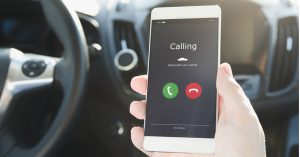
The Massachusetts hands-free driving law bans this action. Fines start today, April 1, 2020.
As of today April 1, Massachusetts police departments can start to issue citations and fines to drivers who violate the Massachusetts hands-free driving law. We encourage you to follow the Massachusetts COVID-19 “Stay at Home” advisory. But if you have to go out, you can help yourself drive more safely and avoid a fine by checking that your car is set up for hands-free mode. Even better? Read this update, but turn off your cell phone while driving. Many of us are exhausted and out-of-routine. Focus on the roads and what you need to get done, so you can get back home.
So far, many drivers are still picking up phones, despite the new law. During the initial grace period from Feb. 23-Mar. 31, police issued 4,500 written warnings across Massachusetts, according to a state official interviewed by WGBH. The official said drivers must become aware of both the law and that police are watching.
“…the police officers I’ve talked to seem to say that everyone who is pulled over says, “Yes, I’ve heard about it. Sorry. My mistake,” said Jeff Larason, director of highway safety at the Massachusetts Executive Office of Public Safety. (Listen to the WGBH segment in full).
Massachusetts passed a texting while driving law in 2010 but lawmakers spent nearly 10 years debating the handheld cell phone ban.
The Massachusetts hands-free driving law was passed by the Massachusetts Legislature in November 2019 and quickly signed by Gov. Charlie Baker on Nov. 29. To help drivers get ready, the state granted an initial grace period. Larason told WGBH 4,500 drivers had received written warnings (broadcast date: March 13). The Boston Globe reported State Police had issued 578 warnings to drivers, in just the first week. On Cape Cod, local police reported 150 verbal or written warnings in the first week (Source: South Coast Today via Cape Cod Times).
What the law allows and bans:
- The law states drivers cannot use any electronic device, including mobile telephones, unless the device is being operated in hands-free mode.
- Drivers can only touch cell phones and mobile phones once to activate hands-free mode.
- Cell phones must be properly mounted to the windshield, dashboard or center console and not impede with operation. This is the only way drivers are allowed to use GPS or voice to text technology such as Bluetooth.
- Drivers are specifically not allowed to touch phones for texting and emailing. Use of apps, video or Internet is also prohibited.
- Drivers who are 18 and younger are not allowed to use cell phones behind the wheel. Hands-free is illegal and can result in violation of their Massachusetts Junior Operator’s License.
- You may be stopped. But you are not allowed to pick up your phone at red lights or stop lights.
- You can pick up your cell phone and make a call if you are in a stationary position, outside a travel lane or bicycle lane.
- There is also an exemption for emergency professionals who need to pick up the phone for calls and those calling 911. 911 calls must be taken seriously. The state advises drivers to make every attempt to pull over before calling 911 – even if you are in hands-free mode.
Violations of the Massachusetts Hands-Free Driving Law
Police in Massachusetts can now start issuing tickets. Here are the penalties:First offense: $100 fine.
Second offense: $250 fine and distracted driving education.
Third offense: $500 fine and distracted driving education.
With a third offense, you may face an insurance surcharge.
Related:
Massachusetts hands-free driving law, Mass.gov
Breakstone, White & Gluck – Boston Personal Injury Lawyers: 800-379-1244
With more than 100 years combined experience, Breakstone, White & Gluck specializes in representing plaintiffs in personal injury cases involving car accidents, truck accidents, pedestrian accidents and bicycle accidents. Our attorneys have extensive experience handling cases for clients injured by negligent use of cell phones and texting while driving. We represent clients across the state of Massachusetts in car accident cases, including in Boston, the North Shore, the South Shore and Cape Cod.
We are open and working remotely for our clients during the state’s COVID-19 advisories. If you have been injured, we are providing free legal consultations at 800-379-1244 or 617-723-7676. You can also use our contact form.
Massachusetts Considers Red Light Cameras to Catch Traffic Offenders

Massachusetts lawmakers are considering legislation to allow communities to install red light cameras.
In Massachusetts, drivers are getting a strong warning to slow down this week as the state Senate debates red light cameras.
The state Senate is scheduled to debate legislation proposed by Sen. William Brownsberger and redrafted by the Ways and Means Committee.
The proposed bill would grant Massachusetts cities and towns new authority to install automated camera systems to capture vehicles that violate traffic laws at intersections, according to The Boston Globe. The goal is safer roads; the AAA Foundation for Traffic Safety has reported red light cameras have contributed to a 14 percent reduction in traffic deaths at intersections.
Drivers who violate traffic laws could end up receiving a citation and fine, without ever being stopped by a police officer. The fine would be $25 and tied to the vehicle registration. The person listed on the vehicle registration will receive the traffic citation, not necessarily the person driving at the time. Violations would not count toward Massachusetts auto insurance surcharges.
This is an important proposal and drivers, cyclists and pedestrians want to watch this week. Many, many traffic crashes happen in intersections, when drivers speed through lights, veer out of their lanes or neglect to give cyclists and pedestrians enough space. At the same time, there are many concerns about privacy and how broad laws should reach.
Beyond Massachusetts, 20 states have passed laws allowing red light cameras, according to the Governors Highway Safety Association. These states stand divided on authority; 11 states fully permit use while 9 states only allow use in specific situations.
Massachusetts Red Light Camera Legislation
Under the Massachusetts proposal, communities could install one traffic camera for every 2,500 residents. Signs must be posted and visible warning drivers approaching the intersection.
To address privacy concerns, communities would be directed to capture photos without identifying the driver or passengers in the vehicle, or any of their belongings. Photographs would be destroyed within 48 hours.
Drivers can be cited for failure to stop for a red light, making an illegal turn at a red light or speeding. Drivers may be cited for traveling at least 5 miles per hour over the speed limit. There will be an appeals process for drivers.
The law should not impact green light or yellow light laws. Lawmakers wrote in language that says a vehicle can be across the line during a yellow light, according to the Globe report.
Communities will be compensated for the costs of installation and operating the camera system. The state’s Transportation Trust Fund will receive the rest of the revenue from citations.
History of Opposition for Red Light Cameras in Massachusetts
Massachusetts has long opposed the idea of red light cameras due to privacy concerns. More than a decade ago, individual communities attempted to lobby state legislators for the right to install traffic cameras, without success.
But now, growing traffic safety concerns has rekindled proposals in Massachusetts and across the country.
- Last year, the AAA Foundation for Traffic Safety reported red light running crashes have reached a 10-year high in the U.S.
- Fatal red light car crashes have increased 28 percent since 2017.
- About 35 percent of the victims were the drivers who thought they could race through the red light.
AAA Recommendations for Red Light Camera Use
AAA recommends communities install traffic cameras at intersections with demonstrated patterns of red light violations or crashes. Before launching red light cameras, communities should have established overall traffic safety and engineering plans, AAA says. Law enforcement should directly supervise red light cameras and drivers should be given fair notice with traffic signs and other outreach.
Breakstone, White & Gluck – Free Legal Consultation
Breakstone, White & Gluck provides aggressive and experienced representation to those injured or killed by the negligence of others. Our attorneys have been consistently recognized for their results for our clients, including as Top 100 New England Super Lawyers, Top 100 Massachusetts Super Lawyers and by Best Law Firms as a Tier 1 Firm in Personal Injury and Medical Malpractice in the Boston Metropolitan region.
If you have been injured, learn your legal rights. Contact our car accident lawyers today at 800-379-1244 or 617-723-7676. You can also use our contact form.
State of Massachusetts Releases Education Materials on New Hands-Free Driving Law

Hand-held cell phone use becomes illegal in Massachusetts on Feb. 23, 2020, when the new hands-free law takes effect.
The state of Massachusetts has published a new web page and pamphlet on the new hands-free driving law, which takes effect on Feb. 23rd.
While Massachusetts passed a texting while driving ban in 2010, it was the final New England state to enact hands-free legislation in November. When the new law at last takes effect, drivers will be prohibited from using cell phones and electronic devices, unless they are in hands-free mode or they have to call 911 for an emergency.
Distracting driving is a serious safety threat on the roads, causing 9 deaths and more than 1,000 injuries each day in U.S. traffic crashes, according to the CDC. This goes beyond just cell phone use. Think of it as any activity which takes your eyes off the road, your mind off the road or your hands off the wheel.
Texting while driving and cell phone use cause many injuries each year. If the news stories have not deterred you, the new Massachusetts hands-free law should; it is about to become much easier for police to identify drivers who are using cell phones illegally.
Penalties for violating the Massachusetts hands-free law:
For a driver’s first offense, there is a $100 fine. The second offense carries a $250 fine and drivers must complete a distracted driving education program. Third and subsequent offenses can lead to a $500 fine and drivers will have to attend the education program. At this point, drivers can also face an insurance surcharge.
What becomes illegal under the Massachusetts hands-free law:
No Holding Your Cell Phone. Cell phones must be mounted or installed in your vehicle before you use hands-free technology or voice-to-text communication. Drivers can only touch their cell phones to make an initial swipe to activate hands-free mode.
No Touching Your Cell Phone Screen. Drivers cannot touch cell phones to email, check social media or watch video. All other Internet use and app use is also banned.
Get Your GPS Ready. GPS is a critical tool for many drivers. Going forward, be aware that you can only activate your GPS from an electronic device which is installed in your vehicle or properly mounted on the dashboard.
No Cell Phone Use at Red Lights. You can only pick up your cell phone if your car is stationary and safely outside the travel lane. Hand-held cell phone use at stop signs and red lights is a violation. Along with drivers, cyclists are also banned from using hand-held electronic devices.
Visit the state of Massachusetts web page to learn more.
Our Final Note
Massachusetts drivers must continue to use caution under the new hands-free law. Even if you follow the law, hands-free doesn’t mean distraction- or accident-free.
Free Legal Consultation – Boston Personal Injury Lawyers
Breakstone, White & Gluck is a Boston personal injury law firm with extensive experience handling Massachusetts car accident claims for those injured by negligent driving. If you have been injured, our attorneys are here to advise you of your rights to file a claim against the driver or another party who may be at fault. For a free legal consultation, call Breakstone, White & Gluck at 800-379-1244 or 617-723-7676. You can also use our contact form.
Protecting Yourself Before and After a Car Accident in Massachusetts

Breakstone, White & Gluck offers a series of new articles to help you understand your rights and responsibilities under your Massachusetts auto insurance policy. As part of these articles, we share tips on how to buy more coverage to help yourself or your family members should you ever be injured or your vehicle damaged. Another driver may be at fault, but if they are uninsured or underinsured, you may need to look to your own auto insurance policy.
Getting Started with Massachusetts Auto Insurance
When someone buys a car, they learn a tough lesson: auto insurance can be costly for Massachusetts drivers. But under Massachusetts law, drivers are required to purchase an auto insurance policy and this is essential if you are injured in a car crash. Our Boston car accident lawyers share tips for getting started.
Infographic: What You Need to Know About Auto Insurance in Massachusetts
Our infographic explains Personal Injury Protection (PIP) benefits and our recommendations for Bodily Injury Coverage, Underinsured and Uninsured Motorist Coverage and Medical Payments Coverage.
How to File a Massachusetts Motor Vehicle Crash Operator Report
While we hope you are never involved in a crash, drivers can take a few minutes to familiarize themselves with the Massachusetts motor vehicle crash operator report. It is your responsibility to submit this form to your auto insurer if you are involved in a car accident resulting in more than $1,000 property damage or injury.
More Auto Insurance Articles
Still have a question? Please visit our website, where we have more articles on insurance coverage for drivers, bicyclists and motorcyclists.
Free Legal Consultation
Breakstone, White & Gluck – Boston Car Accident Lawyers
Breakstone, White & Gluck represents those injured in car accidents, truck crashes and other traffic incidents across Massachusetts. Our firm is based at 2 Center Plaza across from Boston City Hall and we offer a free legal consultation by telephone. Contact our firm today at 800-379-1244 or 617-723-7676 or use our contact form.
Getting Started with Massachusetts Auto Insurance
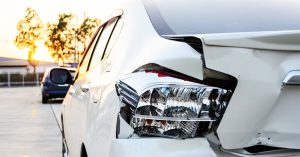 When someone buys a car, they learn a tough lesson: auto insurance can be costly and confusing for Massachusetts drivers. There are unfamiliar terms, contract language and many of us do not understand the coverages we need to buy – and how much of these coverages. But drivers are required to purchase an auto insurance policy in Massachusetts.
When someone buys a car, they learn a tough lesson: auto insurance can be costly and confusing for Massachusetts drivers. There are unfamiliar terms, contract language and many of us do not understand the coverages we need to buy – and how much of these coverages. But drivers are required to purchase an auto insurance policy in Massachusetts.
In this article, our Boston car accident lawyers share tips for getting started with your Massachusetts auto insurance policy.
What is a Massachusetts Auto Insurance Policy?
- What is a Massachusetts Auto Insurance Policy?
- Do I Need to Buy a Massachusetts Auto Insurance Policy?
- Do I Need to Purchase Other Types of Massachusetts Auto Insurance Coverage?
- What Happens if I Do Not Purchase Auto Insurance in Massachusetts?
- What if An Auto Insurance Company Refuses to Sell Me An Auto Insurance Policy?
- How Can I Lower My Auto Insurance Premium in Massachusetts?
- Are My Family Members Covered by My Auto Insurance Policy?
- How Do I Keep My Auto Insurance Policy in Good Standing in Massachusetts?
- What Should I Do if I am Injured in a Car Accident in Massachusetts? Do I Need to Contact My Auto Insurance Company?
What is a Massachusetts Auto Insurance Policy?
Your Massachusetts auto insurance policy is a contract between you and your auto insurance company. You agree to pay a premium and follow the terms of the policy. Your insurance company will pay for certain costs associated with a car accident and other damage.
Do I Need to Buy a Massachusetts Auto Insurance Policy?
- You may purchase your policy directly from the company or through an auto insurance agent.
- Shop around; Different insurers now offer different discounts and pricing since Massachusetts deregulated the industry in 2008 and moved to “managed competition.”
- After you purchase auto insurance, you should carry your policy number with you and keep it in your car along with your state motor vehicle registration.
- Make sure you file away the Coverage Selections Page you receive. This shows your policy number and the coverages you have purchased.
Do I Need to Buy a Massachusetts Auto Insurance Policy?
Yes, you need to purchase a Massachusetts auto insurance policy. Under Massachusetts law, you must purchase the “compulsory” mandatory coverages, including:
Bodily Injury to Others
$20,000 per person;
$40,000 per accident
Do I Need to Purchase Other Types of Massachusetts Auto Insurance Coverage?
Personal Injury Protection
$8,000 per person, per accident
Bodily Injury Caused by an Uninsured Auto
$20,000 per person;
$40,000 per accident
Damage to Someone Else’s Property
$5,000 per accident
Do I Need to Purchase Other Types of Massachusetts Auto Insurance Coverage?
Drivers can buy additional optional types of coverage. These are recommended but not required by law. Optional coverages include:
- Bodily Injury
- Medical Payments
- Uninsured/Underinsured
- Property Damage
- Collision Comprehensive
We write about these coverage types on Breakstone, White & Gluck’s website. You can also click on our infographic below.
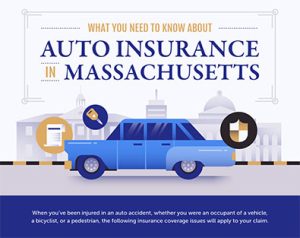
Click to view our infographic on buying Massachusetts auto insurance.
Our attorneys recommend you purchase as much auto insurance as you can afford and may need to cover your expenses if you were injured in a motor vehicle accident. This may include your medical bills, lost wages and other expenses.
As many drivers learn, the mandatory coverages are not enough to adequately cover the high costs after a crash – for financial losses associated with an injury and/or damage to a motor vehicle. Each year, we represent drivers who have been hit and injured by uninsured drivers.
If this happens to you, you too will have to look to your own auto insurance policy.
What Happens if I Do Not Purchase Auto Insurance in Massachusetts?
This is a serious offense. Under M.G.L. c. 90, § 34J, drivers may face potential penalties and fines if they are convicted or plead guilty to operating an uninsured motor vehicle. This charge may be brought against drivers caught operating their own vehicle without insurance as well as those who allow others to drive their vehicles without coverage.
Drivers can face fines of $500 to $5,000 and up to one year of imprisonment in a house of correction. The Registry of Motor Vehicles can also suspend a driver’s license for up to 60 days for a first offense and up to a year for second and subsequent offenses.
What if An Auto Insurance Company Refuses to Sell Me An Auto Insurance Policy?
Auto insurers can refuse to sell you auto insurance based on non-discriminary grounds and they can set their rates based on your driving history, where you live and other factors. They cannot, however, refuse based on your gender, race, national origin, marital status, religion, occupation or age. It is also against the law for an auto insurer to refuse to sell you a policy based on your income or information from a credit reporting agency.
Before you purchase auto insurance, read the Massachusetts Consumer Bill of Rights for Auto Insurance. This will help you respond if you are denied or want to question the auto insurer about their rates.
If an auto insurers turns you away, you can still purchase coverage through another company or the Massachusetts Auto Insurance Plan (MAIP). You automatically become eligible for this coverage if an insurer refuses to sell you a policy.
How Can I Lower My Auto Insurance Premium in Massachusetts?
Do your research online and learn your options for auto insurance discounts. You may qualify for discounts based on your driving record or organizations you belong to (such as AAA) or if you are 65 or old. Your teen may be eligible for discounts for getting good grades.
Ask about discounts when you meet an insurance agent. Discounts may vary between agents and you do not want to start working with an agent unless they offer the discounts you want.
Are My Family Members Covered by My Auto Insurance Policy?
Make sure you understand who is covered to drive your motor vehicle. Your auto insurance policy must list all licensed drivers in your household, even drivers who have their own auto insurance policies. You can exclude a member of your family by submitting an exclusion form.
You may be asked to list other drivers who use your vehicle. Work closely with your auto insurance agent on this point so you will have coverage if you need it.
How Do I Keep My Auto Insurance Policy in Good Standing in Massachusetts?
Read your policy before you sign it and ask your insurance agent questions. Ask as many questions as you need so you are aware of what you must do to stay in good standing.
If you move, update your address with your insurer promptly. Garaging a vehicle in another location may void your auto insurance. To avoid this, let your insurance agent know if you move to another home or apartment or when your teen heads to college and takes a car. This notification should be done promptly, within a few days.
Beyond this, follow state laws. Always operate with reasonable care. Do not speed or use your cell phone while driving. Pay your Massachusetts vehicle excise taxes on time. Keep your license and motor vehicle registration in your car, accessible if you are stopped by a police officer. Respond to traffic tickets and parking tickets promptly.
What Should I Do if I am Injured in a Car Accident in Massachusetts? Do I Need to Contact My Auto Insurance Company?
Review your auto insurance policy with your agent so you understand before an accident happens. You are required to notify your auto insurance company if you have been in a car accident resulting in property damage, injury or death. Massachusetts is a no-fault state and your auto insurer is responsible for paying your initial medical bills and lost wages under your PIP benefits coverage. But you have to alert your insurer that you have been injured to start this process.
If you have suffered serious injuries, it is important to consult an experienced Boston car crash lawyer to help you learn your legal rights. Contact Breakstone, White & Gluck of Boston for a free legal consultation at 800-379-1244 or 617-723-7676. You can also use our contact form.
Beware: The Most Dangerous Pedestrian Street Crossings in Massachusetts
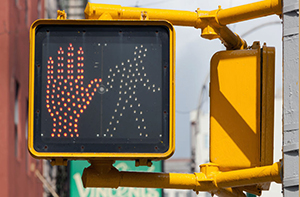
Pedestrians walk safer in Massachusetts communities which utilize pedestrian traffic signals to reduce the risk of crashes.
Pedestrian safety is always an important topic. But in Massachusetts, the topic is most critical during the winter months, when a large number of pedestrian accidents happen.
First, everyone on the road – drivers, pedestrians and cyclists – must use reasonable care and follow traffic laws. Then, take another careful look at intersections and school zones you travel through. Read traffic signs and find the crosswalk markings. They may not be as visible during snow conditions, at night or when a large truck is in the next lane. Make sure to stop well before the crosswalk.
Under Massachusetts law, pedestrians have the right of way when they are in a crosswalk and the “Walk” signal is operational. When there is no signal, drivers shall yield the right of way to pedestrians.
Finally, learn where pedestrian accidents and crosswalk accidents have happened in Massachusetts. Read the list below and take away any insights you can to protect yourself, older parents and young children.
Lynn
From 2007 to 2016, the Massachusetts Department of Transportation (MassDOT) reported the highest numbers of pedestrian crashes were in Lynn. The downtown area – the roads along Washington Street, Central Avenue and Union Street – saw a total of 321 pedestrian crashes, including 223 incidents which resulted in injury or death. There were another 98 crashes without injuries.
Chelsea
The area approaching the Tobin Bridge saw 260 pedestrian crashes over the same decade. The crash cluster included Chestnut Street, Cherry Street, Ash Street and Everett Avenue. These reports included 192 pedestrian crashes resulting in injury or death and 68 other incidents with no injury reports.
Fall River
MassDOT reported North Main Street and surrounding streets had the third highest number of pedestrian accidents. There were 143 pedestrian injuries and deaths. This cluster included North Main Street then stretched over Interstate 195 to Columbia Street, Hope Street, down to Peckham and Palmer streets.
Cambridge
Central Square is one of the busiest pedestrian walking areas in all of Massachusetts. Central Square and nearby streets ranked fourth for pedestrian accidents in Massachusetts. With 143 total crashes, this cluster includes Lansdowne Street and Hancock Street. This area is near the Central Square T stop, bus services and Cambridge city services.
Boston
With 134 pedestrian crashes, a stretch of downtown Boston ranked fifth for the most pedestrian accidents. This area included Boylston Street to the Mass Turnpike, Route 93 and Frontage Road. There were 84 crashes resulting in injury or death.
New Bedford
This Bristol County community saw 82 pedestrian crashes between Route 6 and Hawthorne Street, which is near the waterfront and Buzzards Bay. Of these, 65 crashes resulted in death or injury.
Quincy
There were 77 total crashes which injured pedestrians in downtown Quincy between 2007 and 2016. These pedestrian crashes happened along Hancock Street, between Elm Street and the corner of Washington Street corner. This area sits near Quincy City Hall, the Thomas Crane Public Library and National Park Service.
Worcester
85 Worcester pedestrian accidents were reported in a cluster of streets along Francis J. McGrath Boulevard. These streets included Southbridge Street, Charleton Street and Sycamore Street. Injury was involved in 55 of these Worcester pedestrian crashes.
New Bedford
Along Acushnet Avenue and Sawyer Street, approaching Interstate 195, there were 72 pedestrian accident reports. Of these, 55 pedestrian accidents involved injury or death.
Somerville and Cambridge
There were 69 pedestrian crashes reported in the traffic cluster around Davis Square in Somerville, just along the Cambridge border. Davis Square is where Highland Avenue converges with Holland Street, College Avenue, Dover Street and Day Street. Just a mile from Tufts University in Medford, Davis Square is an ideal commuter location, with an MBTA Red Line subway service into Boston and Cambridge.
About the Data
This data was published in the MassDOT 2016 Top Crash Locations Report, December 2018.
About Breakstone, White & Gluck
At Breakstone, White & Gluck, our attorneys provide experienced representation to those injured by negligent driving, including in pedestrian accidents and bicycle crashes. If you have been injured, learn your rights. For a free legal consultation, contact our attorneys at 800-379-1244 or 617-723-7676 or use our contact form.
Attorney Marc L. Breakstone Says There is Potential for Civil Lawsuits After Hi-Way Safety Systems Party
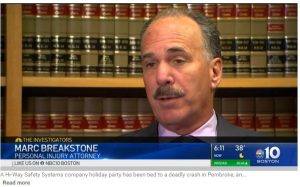
Attorney Marc L. Breakstone was interviewed by NBC Boston in segment: “After Fatal Pembroke Crash, Could Holiday Hosts Be Held Liable?”
Attorney Marc L. Breakstone was interviewed by NBC Boston as part of its ongoing coverage of the Hi-Way Safety Systems holiday party and the subsequent deaths and injuries. At least three employees are now facing criminal charges, including one in an alleged high-speed drunk driving crash in Pembroke, which killed a teenage girl. A fourth employee was found dead in a Rockland motel in the subsequent hours.
The NBC Boston segment, which aired on January 8, 2020, focused on whether the party hosts may also face criminal charges under the Massachusetts social host law and civil lawsuits. The company reportedly hosted the party.
Breakstone is a Boston personal injury lawyer with over 30 years of experience representing victims of negligence. He said victims may able to file civil lawsuits in these serious cases.
“Key is the issue of control. If I control the service of alcohol in my home, and I have the ability to shut someone off and don’t, I could be liable.”
The Plymouth County District Attorney’s office and police now want to interview each party guest to learn more about the circumstances. In the wake of the crash, the Massachusetts Department of Transportation has announced Hi-Way Safety Systems can no longer bid on state contracts. Hi-Way Safety Systems has announced the employee who caused the Pembroke crash which killed a teenage girl and seriously injured another victim has been fired. He has been charged with one count of manslaughter while operating under the influence of alcohol, two counts of operating under the influence causing serious bodily injury and other offenses. He was ordered held without bail in Plymouth District Court.
Watch the NBC Boston segment.
Attorney David W. White Discusses Massachusetts Social Host Liability Law in Boston 25 News Interview
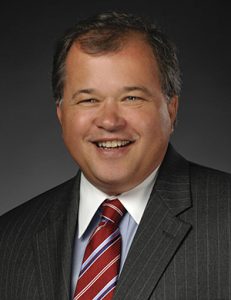 Attorney David W. White was interviewed by Boston 25 News about the potential for social host liability lawsuits following the Hi-Way Safety Systems holiday party and fatal crash in Pembroke, Massachusetts. The driver in that crash is now facing numerous criminal charges related to a teen’s death and injuries to others at the scene, including manslaughter while operating under the influence of alcohol (OUI).
Attorney David W. White was interviewed by Boston 25 News about the potential for social host liability lawsuits following the Hi-Way Safety Systems holiday party and fatal crash in Pembroke, Massachusetts. The driver in that crash is now facing numerous criminal charges related to a teen’s death and injuries to others at the scene, including manslaughter while operating under the influence of alcohol (OUI).
“Now in Massachusetts, that’s a very hard thing to prove,” he said. “You have to be able to show that the host knew or should have known that the guest was getting intoxicated. And it has to be their alcohol. So if a guest brings his or her own alcohol to the party, then there would not be any social host liability.”
Parts of his interview was broadcast last night and this morning. Follow the news website for ongoing coverage: https://www.boston25news.com/
About Breakstone, White & Gluck – Boston Personal Injury Lawyers
Breakstone, White & Gluck is one of the most respected personal injury law firms in Boston. Learn more about our attorneys and our results for clients. If you have been injured, contact us for a free legal consultation at 800-379-1244 or 617-723-7676 or use our contact form.
How to File a Massachusetts Motor Vehicle Crash Report
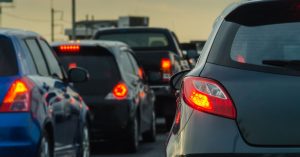
If you have been injured, it is important to submit a Massachusetts motor vehicle crash operator report.
Have you reported your car accident to police?
While we hope you are never involved in a crash, drivers can take a few minutes to familiarize themselves with the Massachusetts motor vehicle crash operator report. Reviewing it can be helpful should you ever be in a crash – or witness one.
You can find the Massachusetts motor vehicle crash operator report online. It is available on the state of Massachusetts website.
Massachusetts Motor Vehicle Crash Operator Report – Driver Obligations
M.G.L. Chapter 90, Section 26 states the driver of a motor vehicle involved in a crash must report the collision if anyone was killed, injured or if property damage resulted in an excess of $1,000 in damage. This damage may be to a vehicle involved in the crash or to another type of property, such as a fence or building.
All drivers involved in crashes must file a report with the Massachusetts police department which has jurisdiction, their auto insurance company and the state Registry of Motor Vehicles.
Drivers have five days to file a report. The exception is when a driver suffered serious injury and is unable to file a police report right away.
Police departments must accept motor vehicle crash reports from any driver who unlawfully left the scene of a hit and run accident, even when the property damage falls under $1,000.
When a driver operates someone else’s vehicle under the influence of alcohol and there is a crash, the vehicle’s owner is responsible for reporting. They have five days to report the crash, based on when they learned about the crash.
Filing a motor vehicle crash report is your responsibility as a driver, whether you were injured or at fault in the crash. Failure to fill out a motor vehicle crash report has consequences. Drivers can have their licenses suspended by the RMV. They may also face criminal penalties.
Motor vehicle crash operator reports are the first step if you need to have your car repaired, replaced or if you have been injured. Police will consider the crash report you submit as part of their investigation in determining who was at fault and whether to cite that person. A traffic citation or criminal charges can support your claim seeking financial compensation for medical expenses, lost wages and other damages.
Filling Out The Report – What Drivers, Passengers and Others Should Know
If you are seriously injured, you cannot gather evidence and information at the accident scene. The investigation will largely fall to the police department which responds.
But if you can collect information, your cell phone is the best tool you have after a car crash. Take photos of everything, from your own vehicle to the roadway and the other vehicle.
This is where it becomes valuable to review the Massachusetts motor vehicle crash report before an accident. By doing so, you will have a better understanding what information to capture on the scene. As you can see, the report requests the other driver’s license and insurance information. It also asks drivers to report:
- Crash Location
- Vehicle You Were Driving
- You and Your Passengers
- Other Vehicles Involved in the Crash
- Non-Motorist(s) Involved
- Crash Conditions
- Crash Diagram
- Witness Information
- Property Damage Information
- Description of What Happened
Read the motor vehicle crash report for more information on each of these points. The report contains a section dealing with pedestrian accidents and bicycle accidents.
What’s Next
When you have been injured, receive medical attention first. Then you can file a police report, consult a Boston car accident lawyer or contact your auto insurance company if you were operating a motor vehicle when the accident occurred. You should decide which order based on the severity of your injuries. We recommend consulting a lawyer first if you have been injured. Our lawyers can explain your legal rights, answer your questions and assist in handling all the important steps, including contact with the auto insurance companies and the police department.
We have represented clients in communities across Massachusetts, from Boston to the North Shore, South Shore, Cape Cod, the New Bedford area and Worcester.
Avoid all contact, whether by phone or email, with the other driver’s auto insurance company. It is also recommended that you and your family stay off social media. Do not confide in friends or co-workers about a car accident until you have spoken to a lawyer and made some progress in your physical recovery.
For additional tips, please visit Breakstone, White & Gluck’s website page, “What to Do When You Have a Car Accident.”
About Breakstone, White & Gluck – Massachusetts Car Accident Attorneys
With more than 100 years combined experience, Breakstone, White & Gluck represents individuals and families who have been injured by negligent drivers in Massachusetts. Clients turn to us for our experience and results in cases involving car accidents, truck crashes, bus accidents and pedestrian accidents.
If you have been injured by a negligent driver, learn your legal rights. Call 800-379-1244 or 617-723-7676 or use our contact form.


